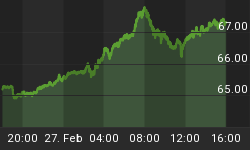Since Nassim Nicholas Taleb released his now famous book, The Black Swan, people have talked about outliers - especially as they relate to investing. These black swan events, as he describes in his book, are highly improbable events that can throw markets for a loop if they occur.
They can also quickly wipe out investors because the risk of these events occurring is thought to be so small that it's not often considered in investment models.
The problem is that an event is only considered a black swan if it is essentially random (e.g. earthquake, volcano eruption, and other things typically classified as "acts of God" on most insurance policies). Many events we're seeing unfold today that have been considered "black swan" occurrences have been the natural long-term result of bad decisions.
In other words, these events aren't random; they're cause-and-effect.
Consider an example: It's been estimated that a person's lifetime risk of being killed in an auto wreck is somewhere in the neighborhood of 77:1. Obviously the likelihood skyrockets for someone playing in traffic on an 8-lane highway. Unfortunately, that's just what many banks, firms, investors, and even nations have been doing: playing in traffic.
Look no further than the meltdown of MF Global. Yes, it's old news, but it's a perfect example of a dead duck. Weeks after the firm went bankrupt, the public is now learning that MF Global owned roughly $11 billion in European sovereign debt. In fact, it has been estimated that the firm was leveraged more than 30:1 (for every dollar of equity on their books, MF had $30 in debt).
Part of the reason MF Global was able to leverage up and walk a tightrope in trying to remain solvent was that, under the "leadership" of CEO Jon Corzine, the firm had "hedged" its bets - or so they thought - with products they didn't understand [hint: playing in traffic].
Given the way MF Global was operating, is it any wonder they got sideswiped?
In the same way, plenty of investors, media pundits, and even executives refuse to acknowledge the likelihood of a Greek default, a collapse of the Euro (both are foregone conclusions, by the way), or the possibility of another big bank going broke. In the risk models these people use, rarely are any of these events considered more than a remote possibility.
Their position certainly ought to change with the knowledge that in the midst of the 2008-09 financial crisis the Federal Reserve injected roughly $7.7 TRILLION into big banks, with Citigroup being the biggest recipient. That's 11 times the previously-stated estimate of just $700 billion.
What this means is that a lot of these events that most people write off as doom-and-gloom are much more likely to come about than they'd like to admit. Greece will default, with Italy likely to follow. The Euro will collapse as a currency, though the European Common Market will likely remain for trade purposes.
Oh, and another major US bank will probably go broke before all is said and done.
But not to fear; while all of this will likely be painful for some investors who haven't prepared, none of this means the world is coming to an end. It's all simply the natural conclusion of some very poorly planned - and even more poorly executed - policies and decisions in the global economy.
The real implication for investors right now is that the markets still have some pain to face before things get better. Given recent political developments around the world, plus changes in the playing field, right now the market doesn't have a leg to stand on. Things will get better, but first the economy needs to regain its footing, and that starts with some guidance on policy and certainty on the environment for business.















